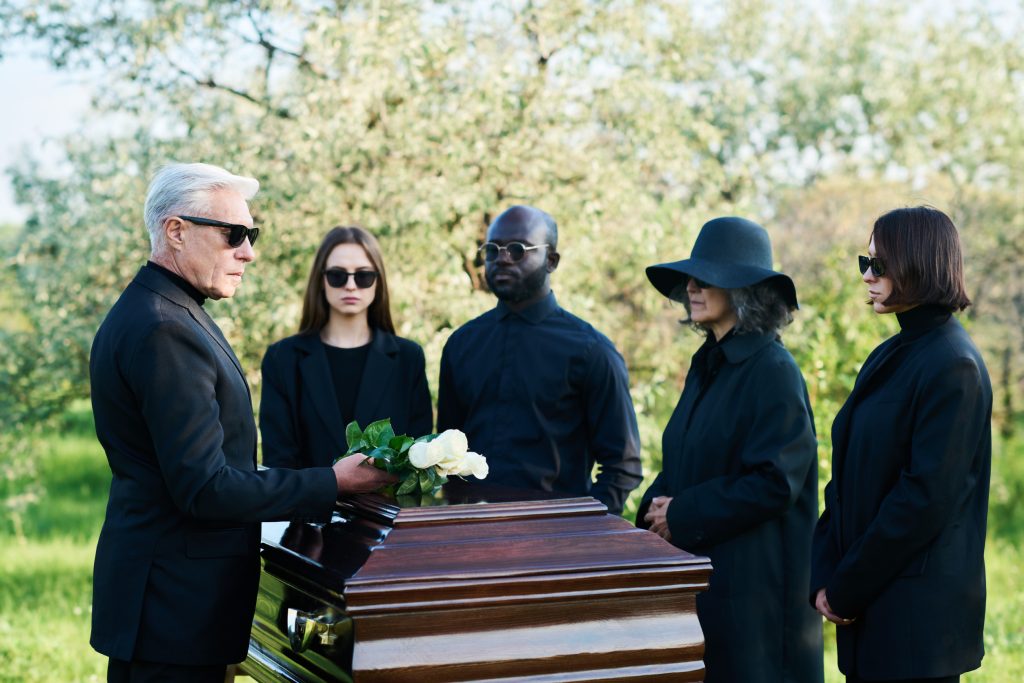
In a world where traditions are constantly being re-evaluated, the conventional funeral is no exception. For generations, a formal service, viewing, and burial was the standard way to say goodbye. However, a growing number of families are choosing to skip the funeral entirely, opting for different, more personal ways to grieve and remember. This decision, while perhaps surprising to some, is often the result of careful consideration, reflecting shifts in cultural values, financial realities, and family structures. Understanding the motivations behind this choice reveals a deeper trend toward personalization in how we handle life’s most significant moments.
The Staggering Financial Burden
Perhaps the most significant factor driving families to skip the funeral is the overwhelming cost. The median cost of a funeral with a viewing and burial in the United States can easily exceed $9,000, a sum that many families simply cannot afford. This price tag doesn’t even include the cost of a cemetery plot, headstone, or flowers, which can add thousands more. For families already grappling with medical bills or the loss of an income earner, this expense is an impossible burden. Opting for a simple direct cremation, with no service, allows a family to grieve without plunging into debt.
A Shift in Religious and Spiritual Beliefs
Society is becoming increasingly secular, and with that comes a departure from traditional, religion-based funeral rites. Many people no longer feel a personal connection to the solemn rituals, prayers, and sermons that are central to a conventional service. They may feel that a formal funeral is impersonal and does not accurately reflect the life and beliefs of the person who has passed. Instead of a somber church service, they might prefer a more uplifting ‘celebration of life’ held later, or no service at all. This choice honors the individual’s unique spirit rather than adhering to a one-size-fits-all religious template.
The Strain of Family Geography
In previous generations, extended families often lived in the same town or region, making it relatively easy to gather for a funeral. Today, families are frequently scattered across the country or even the globe. The logistical and financial challenge of arranging last-minute travel for a funeral can be immense for many relatives. Choosing to skip the funeral alleviates the pressure on loved ones to spend hundreds or thousands of dollars on flights and hotels. It allows family members to grieve in their own space and time, without the added stress of coordinating a large, geographically dispersed group.
A Desire to Avoid the Emotional Trauma
For some, the prospect of a traditional funeral, particularly an open-casket viewing, is emotionally unbearable. The focus on the body and the public display of grief can be a traumatic experience, overshadowing the need to remember the person as they were in life. These individuals and families believe that a formal, somber event only deepens the pain of their loss. To protect their emotional well-being, they choose to grieve privately or through smaller, more intimate gatherings. They find more comfort in sharing positive memories than in participating in a ritual they find distressing.
Preferring a Celebration of Life Instead
Many who skip the funeral aren’t forgoing a remembrance altogether; they are simply redefining it. They are uncoupling the disposition of the body from the act of memorialization. A family might choose a direct cremation immediately following the death and then plan a ‘celebration of life’ weeks or even months later. This event is often more joyful and personalized, held at a meaningful location like a park, restaurant, or family home. This approach removes the time pressure and somber atmosphere of a traditional funeral, allowing for a more authentic and uplifting tribute to the deceased’s life.
The Future of Farewell
The decision to skip the funeral is a deeply personal one, reflecting a broader societal shift toward individuality and pragmatism. It’s a choice born from financial necessity, changing spiritual views, geographical realities, and a desire to protect emotional health. As more people prioritize authentic, meaningful experiences, the ‘rules’ for how we mourn will continue to evolve. This trend doesn’t signify a lack of love or respect for the deceased; rather, it represents a desire to honor them in a way that feels genuine and sustainable for the living. The focus is moving from prescribed ritual to personalized remembrance.
What are your thoughts on forgoing a traditional funeral in favor of a different kind of memorial, or none at all? Share your perspective in the comments below.
Read More:
7 Funeral Home Practices That Were Just Made Illegal
Kids at Weddings and Funerals: Adorable Addition or Major Distraction?
The post Here’s Why Some Families Skip the Funeral Entirely appeared first on Budget and the Bees.







